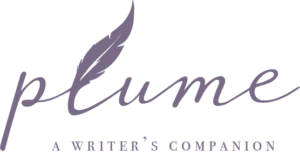
“If you want to be a writer, you must do two things above all others: read a lot and write a lot.”
― Stephen King
Keeping the reading spark alive
Sometimes I go through a reading dry spell. Maybe I haven’t found the right book for the moment or I’m preoccupied with a Netflix binge, or I just finished grading 75 freshman comp essays and the thought of even reading a street sign is exhausting.
Then I grow antsy. I’m going through reading withdrawal! How can I be a writer who doesn’t read?! I need a book to read before bed, to pull out when I’m getting my oil changed, or simply to help me escape from daily life for a few chapters. But what if I want to follow a plan that would help me avoid these literary lulls?
Reading Challenges: Pushing Yourself
There are so many reading challenges to choose from, including but not limited to Book Riot’s Read Harder Challenge; Read, Sleep, Repeat’s Diverse Reads Challenge; Bookish’s 2018 Reading Challenge; and Redeemed Reader’s Reading Challenge for Kids and Teens. Or if you’re feeling beyond ambitious, there’s always the Rory Gilmore Reading Challenge. I love the idea of setting up reading goals for the year, of carefully selecting books to fit the categories you’ll need to fulfill, and of list-making (one of my favorite activities). But ultimately, I lose focus and want to go rogue. Last year I was just two and a half books into a challenge before I veered off. This year I’ve decided that I’m doing my own sort of reading experiment. There are several formal challenges that follow a similar premise, but here’s what I’m going to try:
I want to read 26 books, with each author or book title coming from a different letter of the alphabet. Twenty-six is an ambitious number and some letters might prove trickier than others (X, anyone?), but I like how this mostly leaves the books wide open. I want to push myself outside my comfort zone in terms of subject matter, genre, and voices that I consume this year.
To audiobook or not to audiobook…
The first book I’ve sunken my teeth—or rather, ears—into in 2018, is the audiobook of Amy Poehler’s Yes Please. I’d been meaning to read it for years, and when I finally downloaded the Libby app, there it was, available, read by the author, and best of all, free! I know some people grapple with whether or not audiobooks “count” as reading, but I say they do. Some titles are more enjoyable in audio format than others: I’m a sucker for a British accent, so The Great Gatsby and The Girl on The Train were quite fun in that regard, and there was something mesmerizing and transgressive about listening to Carrie Fisher herself posthumously describe her affair with Harrison Ford in The Princess Diarist. The bottom line is, if I can squeeze more books out of my commute or dishwashing time, then I’m all for it!
Writers who read
As Mr. King noted, to be great creative writers, we must be great readers. We need to experience the ways that others use language and tell stories to help pin down our own ideas and refine our particular voices. I may not ever write a mystery novel, but Tana French’s delicious mix of plotting and prose has taught me how to balance narrative and language. Sherman Alexie showed me the grace of vulnerability in memoir. Ottessa Moshfegh’s writing is a master class in atmosphere. Sometimes I’ll read a book that shows me what I don’t want to do with my writing, and that’s instructive, too (I’m sure you can fill in any number of bad books you’ve read here, but I’m not naming any names!).
Jennifer Weiner nicely sums up what reading can mean to a creative writer:
“Cram your head with characters and stories. Abuse your library privileges. Never stop looking at the world, and never stop reading to find out what sense other people have made of it. If people give you a hard time and tell you to get your nose out of a book, tell them you’re working. Tell them it’s research. Tell them to pipe down and leave you alone.”
